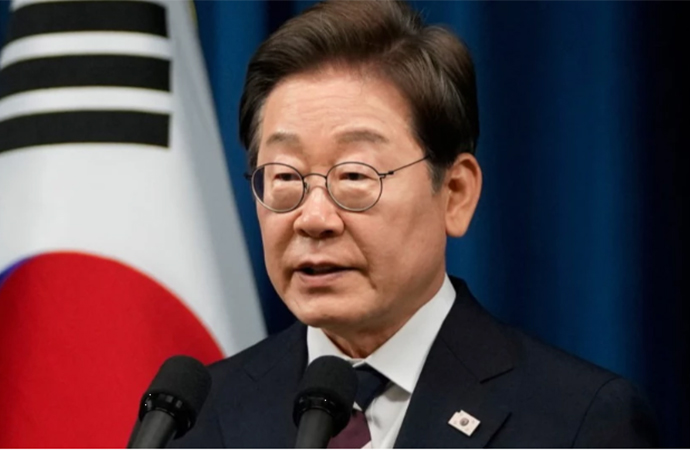Featured 2

Photo: AP/UNB
Perhaps nothing could have saved TikTok from the recently enacted US law requiring that it be sold to a non-Chinese owner or be banned outright. But one thing is certain: the company’s aggressive lobbying strategy ultimately did more harm than good.
TikTok is now one of the biggest stories in business and geopolitics. US President Joe Biden has just signed a law that will ban the massively popular app in nine months if its Chinese owner, ByteDance, does not sell it to a non-Chinese entity.
TikTok, for its part, has called the law "political theater," and it is probably right: there is always some theatrics in politics, and bashing China is currently one of the most popular shows in town. Almost no other issue can unite the two major parties. But, given the arrogance TikTok exhibited in the weeks and months leading up to the bill's passage, the company's leadership clearly has a fundamental misunderstanding of America and Americans.
Compared to policymakers in other countries, US lawmakers are usually reluctant to regulate business, and many had previously opposed a forced sale of TikTok for fear that it could create a perception of corruption, reduce business and investor confidence, and undermine free speech. Most agree that when regulation does happen, it should clear the relatively high bar of serving the public interest.
Until a month ago, the main public-interest concern was data privacy. Questions such as who can access user data, and whether that data can be put to malign uses, are pertinent to all large social-media platforms. Over the past decade, Congress has held many hearings on the issue, often targeting large US companies such as Meta and Google. But these concerns are amplified in TikTok's case, because many US lawmakers assume that the Chinese government can force TikTok to hand over its American users' data. Under laws China enacted in 2017 and 2021, all Chinese organizations are required to assist the government's intelligence-gathering and counterespionage work, if asked.
TikTok promised that it would store Americans' data on servers outside China. That did not satisfy US lawmakers and security officials, who continued to worry about "backdoors," an issue that contributed to the US Federal Trade Commission's decision two years ago to ban equipment made by Huawei.
Still, at one point, there was hope for a workable solution whereby US regulators would conduct detailed examinations of the company's technology. Since data privacy is an industry-wide concern, TikTok could have played the issue to its advantage, such as by investing in data safeguards and supporting independent research of its own platform. It could have met US lawmakers halfway, and approached the issue proactively, transparently, and in the spirit of collaboration. TikTok could have been a positive force for change in the US tech industry.
Instead, TikTok adopted an aggressive stance, hired expensive lobbyists, and in a catastrophic misstep, even mobilized its (predominantly young) American users to call their representatives in Congress. Pop-up messages urged users to, "Let Congress know what TikTok means to you and tell them to vote NO." Some congressional offices received more than 1,000 calls in the space of a day.
On the surface, this may have seemed like a savvy strategy, given Uber's earlier success in mobilizing its users to lobby against legislation it opposed. But TikTok overlooked a crucial difference: Uber is an American company. By intervening in the US political process, TikTok made the situation much worse for itself, highlighting a second major threat that its critics say it could pose to the public interest.
Over the past decade, ordinary Americans and lawmakers have grown increasingly concerned about social media's undue influence on users' beliefs, behaviors, and voting decisions, and on how hostile foreign actors can exploit the major platforms for their own purposes. This risk strikes at the heart of American democracy, and it is not just hypothetical. We already know that Russia and other governments regularly try to interfere in US and European elections.
Given this context, TikTok's mobilization of its users wasn't just an annoyance to elected officials' staffers; it was an alarm bell. Many of those who responded to the call seemed not even to know what they were protesting. A foreign-owned company had brazenly demonstrated just how easy it is to manipulate its users to serve its own interests, confirming that it knew all along how much political influence it could exert. Suddenly, and understandably, the focus in the US shifted from Russian voter manipulation to Chinese voter manipulation.
Perhaps nothing could have saved TikTok from the forced-sale legislation, given the current geopolitical climate. We will never know what could have been. But it is clear that the company's aggressive strategy backfired. TikTok launched what many saw as an attack on American democracy, and ended up ensuring the majorities that were needed to push the bill through Congress.
TikTok's future in America is now uncertain. Before it weighs its next moves, the company should fire its lobbyists and consultants, who should have advised it to be more respectful of Americans' legitimate concerns about data privacy and threats to democracy. And all other non-US firms should learn from TikTok's recent missteps on what not to do.
From Project Syndicate

























Leave a Comment
Recent Posts
Bangladesh’s first drought-res ...
In a groundbreaking development for Bangladesh’s agriculture, Ga ...
US and Iran hold another round ...
Iran and the United States were holding another round of indirect talk ...
An early hiccup for the new government?
Japan invites PM Tarique, eyes cooperation with Bang ..
Bangladesh to achieve sustained growth, prosperity u ..
Dhaka indicates ‘forward looking, balanced partnersh ..